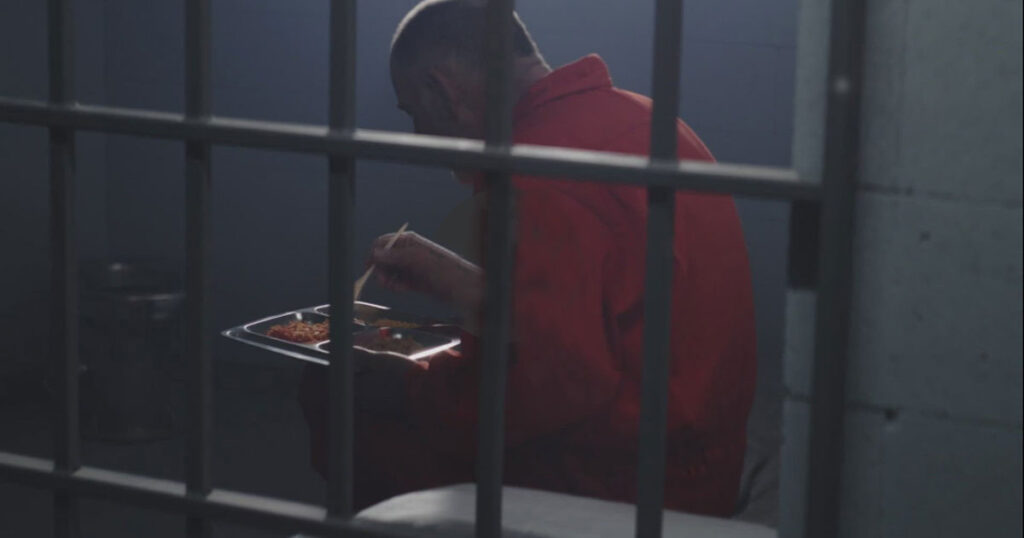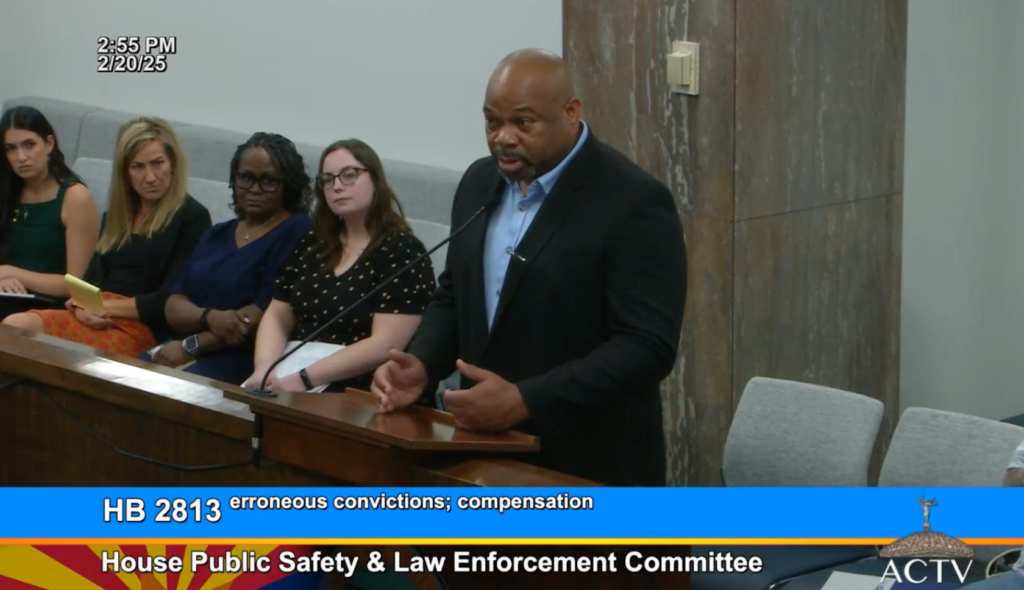Policy Spotlight
Legislation
Laws that shape justice.
Legislation is one of the most powerful tools for achieving lasting justice reform. This page highlights the bills and policies we support, track, or have helped shape — all aimed at creating a fairer, more accountable system.
SB 1500: Erroneous Convictions; Compensation
Bill summary:
Creates a legal process for people wrongfully convicted of serious crimes to receive state compensation and additional support like mental health counseling, educational help, and expungement of their criminal records. The law sets out who qualifies—such as those pardoned based on innocence or those whose convictions are overturned—and explains how the compensation is calculated based on the time spent in prison and the harms suffered.
FAQ
SB 1500 is a new Arizona law that helps people who were wrongfully convicted of a crime and who qualify for compensation as detailed below. If someone was sent to prison for something they didn’t do, this law gives them a way to ask for money and support to help rebuild their life. The law goes into effect on December 31, 2025.
A person may qualify if:
- They were convicted of a felony and spent time in prison.
- They didn’t commit the crime.
- They didn’t lie under oath or fabricate evidence or cause the conviction.
— However, a confession or admission later found to be false, or a guilty plea does not count as lying or causing the conviction. - One of these happened after their conviction:
— They were pardoned because they were innocent.
— Their conviction was overturned, and the charges were dropped, or they were found not guilty at a new trial.
— Their conviction was overturned, and they took a no-contest or Alford plea while still saying they were innocent.
- Filing a claim
The person (called the claimant) files a claim for compensation in Superior Court where they were convicted or in Maricopa County. - Deadline
Claims must be filed within 2 years of the conviction being overturned, or 2 years of the law’s start date if the person was released earlier. - Attorney General’s role
The Attorney General will respond to the claim and can object to compensation. If there’s an objection, the court will hold a hearing. - Court decision
If the court agrees the person was wrongfully convicted, the court will order an award of compensation.
The law provides:
- Money based on how many years the person was in prison.
- Extra money for:
— Time spent on death row or having to register as a sex offender.
— Costs for health care, mental health, and reintegration services.
— Unreimbursed fines, fees, and restitution.
— Attorney fees.
— Other damages. - Services like mental health support, college education or job training, and help with financial planning.
The law helps clear their name by:
- Expunging (erasing) and sealing their arrest and conviction records.
- Restoring their civil rights (like voting or owning a firearm).
- Removing DNA and fingerprint records from state databases.
- Proof that your conviction was overturned, dismissed, or that you were pardoned based on your innocence.
- Documents showing how long you were incarcerated.
- Any evidence supporting that you didn’t commit the crime and didn’t cause the conviction.
You can file in the county where you were convicted or in Maricopa County, in the Arizona Superior Court.
- The Attorney General (AG) has 30 days to respond.
- If the AG objects, the court will hold a hearing.
- If the AG doesn’t object, the court may grant your claim without a hearing.
- Either way, the court will decide and explain its ruling in writing.
Having a lawyer can help, but it’s not required. The court will consider whether you represented yourself (called being “pro per”) when deciding if you should get extra compensation. You can contact info@azjusticeproject.org for help finding an attorney to assist with your claim.
Nope! This compensation is not counted as income for state or federal taxes.
You can still file a claim—just make sure to do it within two years of the law taking effect, which starts December 31, 2025.
Yes. You can ask the court to seal your compensation case and records.
Victims may also get help. If someone was wrongfully convicted, the victim of the crime can get up to 52 hours of counseling paid for by the state.
In the news
AZCapitolTimes: SB1500: Restoring dignity and lives after wrongful conviction
KPNX-TV Phoenix: Arizona to compensate wrongfully convicted under new law
Arizona Agenda: Justice Delayed
Currently, 39 states provide compensation for wrongful convictions, according to the Arizona Justice Project.
Contact your legislators and ask them to support SB 1500





